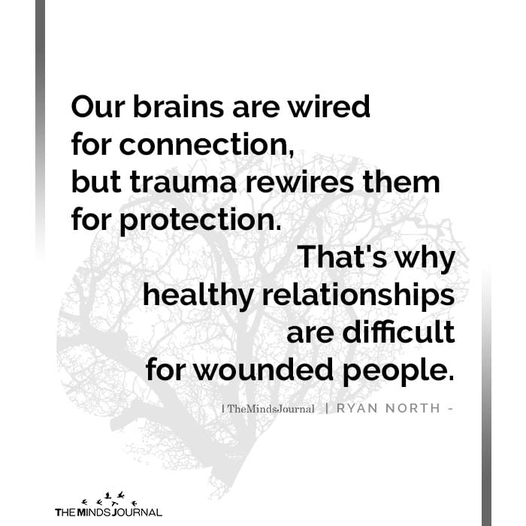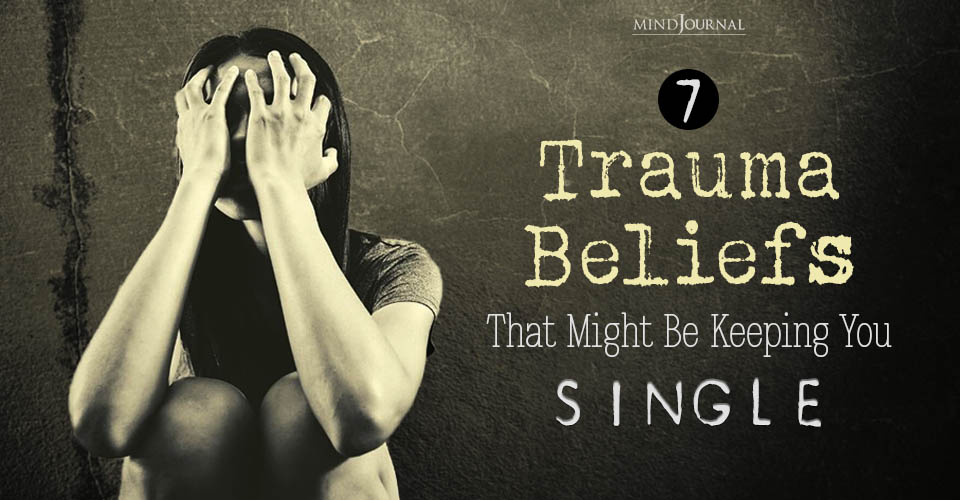Are you still single, even after putting in a lot of effort to find love? The answer might lie in your trauma beliefs. Yes, you heard me right. Trauma beliefs are the deep-seated, often subconscious notions formed from past painful experiences that shape how you see yourself and relationships, in general.
Beliefs caused by trauma can act as invisible barriers, keeping you from finding and maintaining love. If you are tired of feeling stuck in the same old patterns, it’s time to dig into these 7 trauma beliefs that might be sabotaging your love life.
So, are you ready to know all the ways trauma is keeping you single? Come on, let’s find out together.
Related: How To Deal With Trauma Triggers In A Relationship: 6 Strategies for Healing and Connection
7 Trauma Beliefs That Might Be Keeping You Single
1. “We are simply friends, nothing more.”
Often, people hide behind the safety net of friendship when they fear rejection or intimacy. If you frequently find yourself saying “we are just friends” about someone you have feelings for, it could be a sign of deeper trauma-related fears of vulnerability and rejection.
This sort of trauma beliefs can keep you exploring potentially fulfilling connections. To overcome this, practice being honest about your feelings and taking small steps towards being more open and vulnerable, and allowing deeper, meaningful connections to form.

2. “I am not toxic, they are.”
Blaming all relationship issues on the other person is a classic defense mechanism to avoid confronting your own role in the dynamic. The belief that “I am not the problem, they are” stems from a place of self-protection but ultimately stops you from growing.
It’s important to think about your own behaviors and how they contribute to the relationship’s challenges. When you learn how to take accountability, it doesn’t only lead to healthier, happier relationships, it also helps you fight your PTSD core beliefs.
3. “Having sex is the best way of trying to find out if you are compatible or not.”
Believing that sexual compatibility trumps overall compatibility in relationships is one of the worst mistakes you can make if you are trying to find love. While physical intimacy is an important part of every relationship, relying solely on sex overlooks other important factors such as emotional connection, shared values and communication.
This sort of a mindset can lead to you being in relationships based on physical attraction alone, which may not stand the test of time. Instead, balance physical chemistry with intellectual and emotional compatibility for building a healthier and more mature relationship.
4. “They have been through a lot in their life. It’s just a coping mechanism.”
Empathy is crucial in relationships, but excusing someone’s harmful behavior because of their past trauma can be really, really detrimental for you and your peace of mind.
Believing that someone’s addiction or other destructive habits are excusable due to their trauma might trap you in a cycle of trying to “fix” them.
It’s important to set boundaries and recognize that while their past may explain their behavior, it doesn’t justify staying in a toxic and unhealthy situation.
Related: 4 Trauma Responses: When Your Defense Mechanism Turns Toxic
5. “There are no good men or women left to get married to.”
Having a cynical outlook on relationships can be a self-fulfilling prophecy. Believing that there are no good men, women or marriages can close you off from potential relationships, and make you feel even more hopeless.
One of the worst ways trauma is keeping you single, this sort of belief often arises from past disappointments and hurts.
To change this mindset and open yourself up to love, you need to focus on positive examples of relationships and marriages around you. Work on having an optimistic yet realistic view of love and companionship.

6. “I always fall for emotionally unavailable people and I can’t help it.”
If you constantly find yourself drawn to partners who are emotionally unavailable, it might be because deep down you believe that’s all you deserve. One of the saddest trauma beliefs to have, this stems from past experiences where your emotional needs weren’t met, leading you to expect the same from future relationships.
You might unconsciously seek out partners who reaffirm this belief, thus continuing the cycle. Breaking free from such PTSD core beliefs starts with recognizing your own worth and seeking out relationships where emotional availability and mutual support is prioritized.
7. “I am exactly where I am meant to be, and I am happy about it.”
While it’s important to have a positive outlook, the belief that you are always exactly where you are supposed to be can sometimes be an excuse to avoid change or growth.
If you are stuck in an unfulfilling relationship or habitually single, this mindset can prevent you from taking necessary steps towards improving your situation.
You know what you can do? Acknowledge that while some situations do serve as learning experiences, you also have the power to make proactive changes, if you really want to find real, genuine love.
If you relate to these beliefs caused by trauma, then let me tell you something – it is possible to break free from these patterns, but only when you choose to identify and challenge these beliefs.
Related: 11 Behaviors That Keep You Single Forever
It is only when you decide to open yourself up to healthier, fulfilling relationship, will you be able to actually taste what true love feels like. It is indeed a journey of self-discovery and healing, but the rewards are worth it.











Leave a Reply